Bees for Peace: How Beekeeping Promotes Peace among Pastoral Communities in Kenya
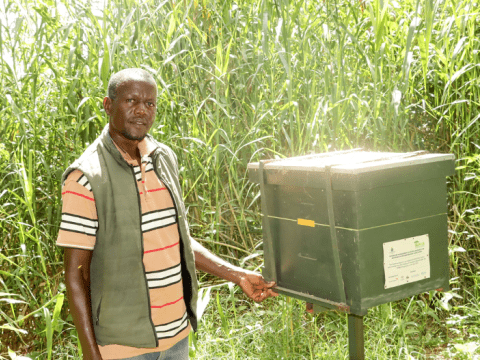
Turkana County in Kenya borders Ethiopia to the northeast, South Sudan to the northwest, and Uganda to the west. Communities in the area primarily practice pastoralism, relying on their animals for food and income. Pastoralists move two to three times in a year to prevent exhausting the land’s resources, traditionally following the rains with their livestock. Factors such as overstocking and the destruction of water catchment areas exacerbate intercommunity tensions, often leading to violence and disrupting peaceful coexistence.
The impacts of climate change, such as prolonged droughts, worsen these conflicts by creating food and livelihood insecurity, increasing competition for resources like water and grazing land forcing people to migrate. This situation, compounded with poverty and idleness, drives marginalised youth into life-threatening activities such as armed banditry, further threatening stability and leaving families poorer and less resilient.
Joseph Ethekon, a World Vision staff based in Turkana County, says that such conflicts disrupt children's education and cut off their dreams, with families also losing livestock they could sell to meet needs and pay school fees for their children.
World Vision Kenya, through the Integrated Management of Natural Resources for Resilience in Arid and Semi-Arid Lands (IMARA) programme, funded by the Government of Sweden, has been working with communities and other partners to create diversified livelihoods from natural resources management through bee-keeping.
In the Arid and Semi-Arid Lands (ASALs) of Elgeyo Marakwet, Laikipia, Samburu, Turkana, and West Pokot Counties, IMARA has trained over 3,000 participants and supplied them with hives and equipment to establish and expand their apiaries.
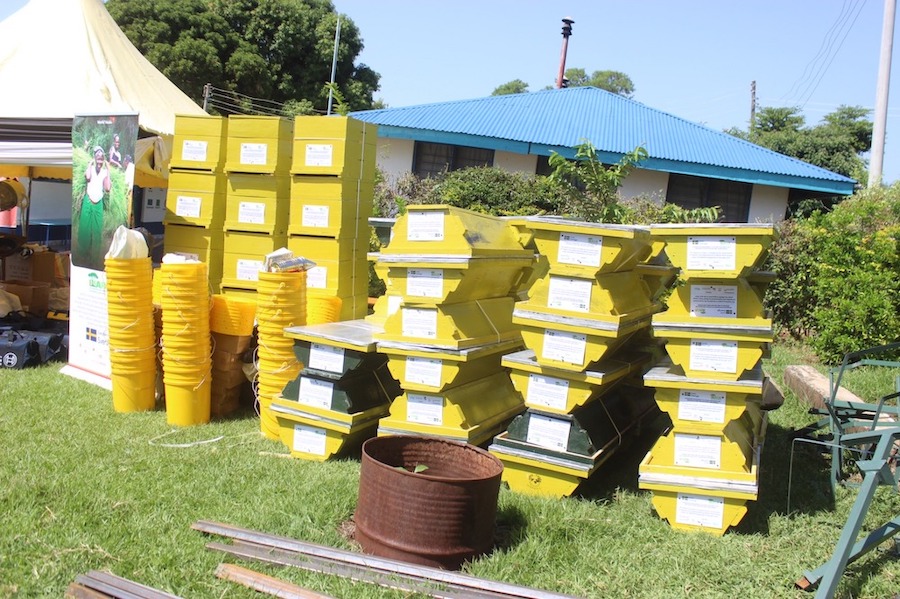
In Turkana County alone, World Vision’s IMARA programme has trained over 450 pastoral farmers to become honey producers. Additionally, some farmers have been equipped to become “lead beekeepers” or “beekeeping promoters,” preparing them to help others improve their practices. This initiative promotes peace and economic empowerment as communities work together to nurture bees and produce honey - a nutritious, healthy, and natural foodstuff.
Peter Emuria, a father of eight from Kaputir in Turkana County, is one of the programme participants. He once relied on livestock, which were either stolen during bandit attacks or died due to prolonged droughts, leaving his family poor and hopeless. Now, with the support of 30 hives from the IMARA programme, Peter keeps honeybees and serves as a lead beekeeper. Peter is also among the farmers trained on Moringa tree farming and provided with seedlings to plant the tree on their farms. The tree’s flowers provide high levels of pollen and nectar that bees need for their existence and for producing honey.
"We were trained on beekeeping techniques, business management, and environmental conservation and given modern hives. These skills have enhanced our beekeeping practices and empowered us to undertake other entrepreneurial activities. With large parcels of under-utilised land, I can continue keeping livestock and practice beekeeping on my farm," he says.
The programme further identified and supported one beekeeping group, which was trained on hive production and bee care processes. Additionally, IMARA participants were supported with training on hive fabrication, suit sewing, and queen rearing, which reduced the distance beekeepers must travel for materials and supplies.
"We can now diversify our sources of income rather than relying solely on livestock, which can be lost to drought or stolen by cattle rustlers. Bee farming has provided employment opportunities for many young people in my area. Many youths who were idle and hopeless, often turning to life-threatening activities, are now embracing beekeeping as an economic activity.” Peter says.
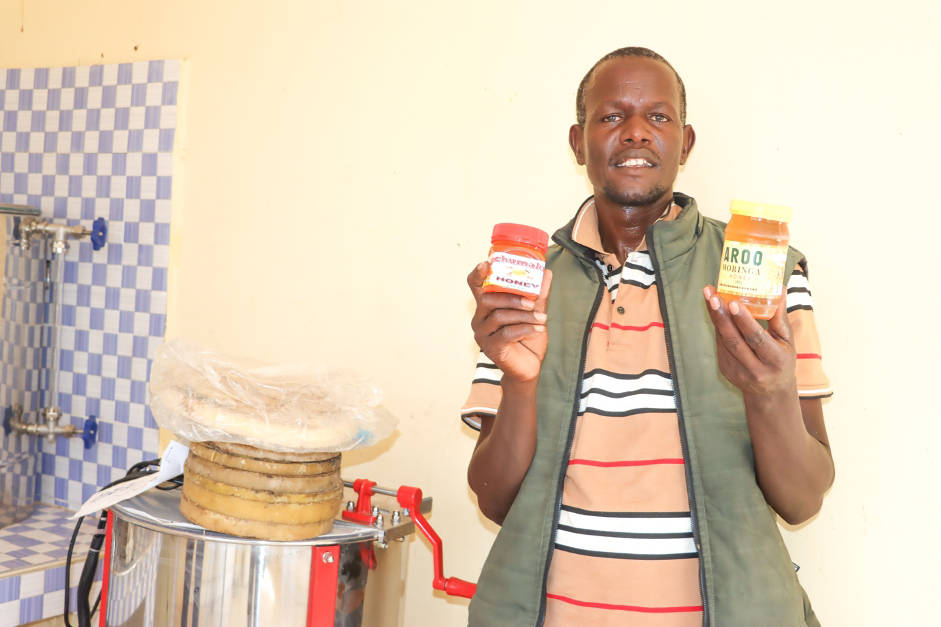
Moses Kiptugen, IMARA Programme Manager, notes that beekeeping was traditionally overlooked among pastoral communities due to a strong nomadic livestock culture and lack of knowledge. He, however, urges communities to venture into the beekeeping and processing hive products business as it can be just as lucrative as other businesses and practices.
Bee farmers like Peter can now comfortably pay their children's school fees and meet other household needs. Peter has also opened a shop selling bee products, employing a shop attendant. He says people saw beekeeping as unprofitable, but he is now reaping the benefits. “A good harvest yields 102 kilograms of honey, selling for Ksh.850 to Ksh.1,000 per kilo,” Peter says. Additionally, Peter harvests over 80 kg of beeswax, which is used to make different products sold across the country.
The programme encourages generational involvement to help young people earn a livable income through diversified livelihoods and improved natural resource management in Kenya's Arid and Semi-Arid Lands (ASALs).
Some young people who dropped out of school due to poverty and instability have enrolled in Technical and Vocational Education and Training (TVET) centers to pursue agricultural and entrepreneurial training. They use the income generated from bee farming to pay school fees, providing an avenue of financial stability for the youth and lessening the economic pressures that fuel conflicts.
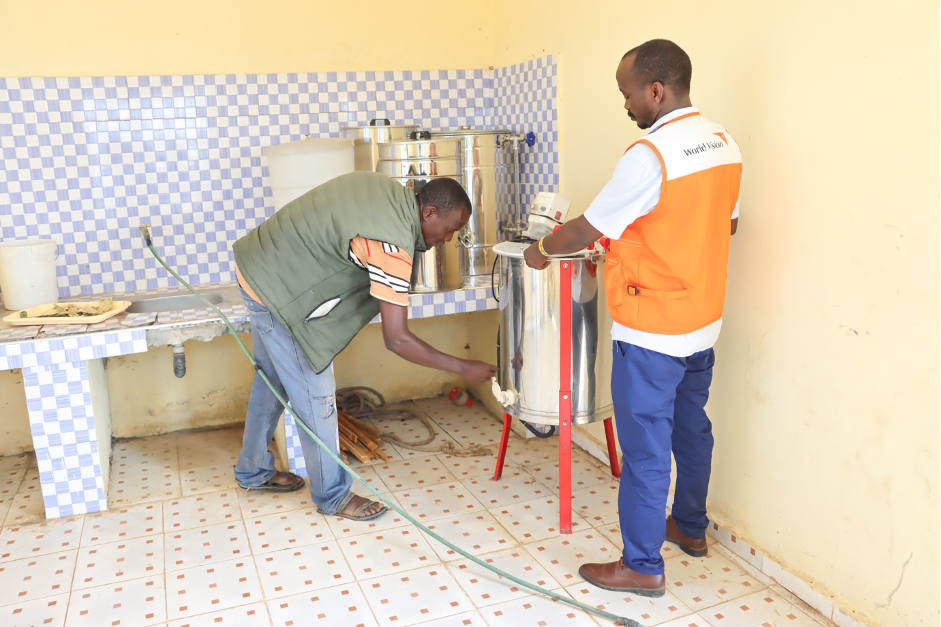
Honeybees also provide essential ecosystem services, particularly pollination, which supports biodiversity and improves crop yields. By protecting bee populations, communities also help safeguard the environment.
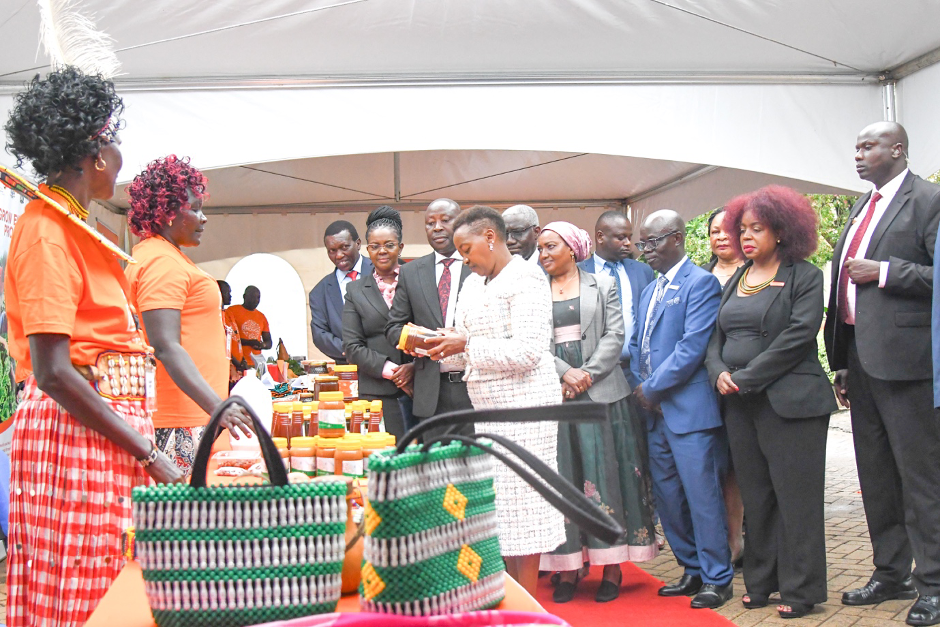
by Felix Pilipili, Communications Specialist, World Vision Kenya